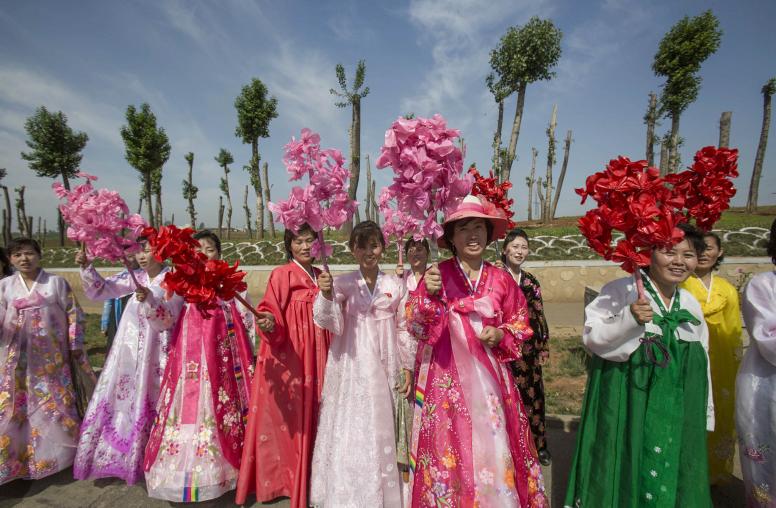Challenges of Building a Korean Peace Process: Political and Economic Transition on the Korean Peninsula
This Special Report, authored by Program Officer Scott Snyder, is based on meetings of the working group that focused on political, economic, and security developments in North and South Korea.

About the Working Group
The United States Institute of Peace has held an ongoing series of working group meetings on U.S. policy toward the Korean peninsula since fall 1993, when a group was convened to examine policy options for dealing with the North Korean nuclear challenge.
Two Special Reports were issued in 1994. The first report, North Korea's Nuclear Program: Challenge and Opportunity for American Policy, addressed strategic and organizational aspects of an effort to achieve a negotiated solution to problems posed by North Korea's nuclear program. The second, The North Korean Nuclear Challenge: The Post-Kim Il Sung Phase Begins, provided a preliminary analysis of the Geneva Agreed Framework and examined the challenges posed by the political situation on the Korean peninsula following the death of Kim Il Sung.
A Coming Crisis on the Korean Peninsula?: The Food Crisis, Economic Decline, and Political Considerations, published in October 1996, explored prospective challenges to the coordination of U.S., South Korean, Japanese, and Chinese policies in the context of the difficult circumstances and circumscribed options currently faced by North Korea. North Korea's Decline and China's Strategic Dilemmas, an October 1997 report based on a research trip to the northeast China border with North Korea, analyzed Chinese perspectives on the two Koreas. Beyond the Financial Crisis: Challenges and Opportunities for U.S. Leadership, published in April 1998, detailed political and security implications of the Asian financial crisis.
This Special Report, authored by Program Officer Scott Snyder, is based on meetings of the working group that focused on political, economic, and security developments in North and South Korea. The meetings were held at the United States Institute of Peace in November and December 1997 and March 1998.
The views expressed in this report do not necessarily reflect those of the United States Institute of Peace, which does not advocate specific policies.



